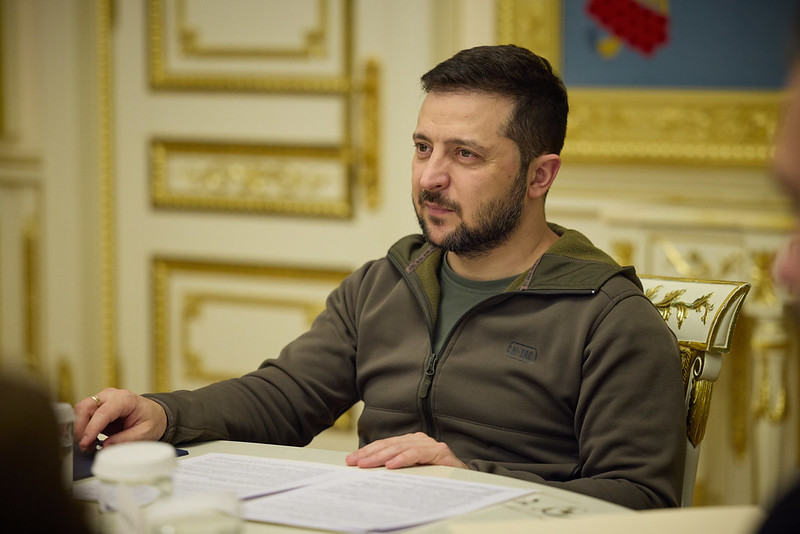
In December, Ukrainian President Volodymyr Zelensky endorsed a draft law prohibiting the Ukrainian Orthodox Church (UOC) from operating. The proposed regulation and the raids have sparked controversy and concern among some religious groups and the international community, as there are fears that it may violate religious freedom.
The UOC is canonically linked to the Russian Orthodox Church. Zelensky's endorsement of the draft law came after raids on several monasteries under the jurisdiction of the UOC.
Experts weigh in on potential religious freedom violations
As reported by Christianity Today, there is a controversy in Ukraine over the government's proposal to ban particular churches with ties to Russia. Some experts, including those from the evangelical, Orthodox, and academic communities, are concerned about the potential violations of religious freedom resulting from such a ban.
Others argue that the ban is necessary for national security reasons, as the targeted churches have been suspected of collaborating with Russia during times of war. However, critics of the ban argue that it is politically motivated and may have negative consequences for religious minorities in the country. Ukraine has a history of protecting religious freedom, so the proposed ban has raised concerns among the international community.
Mark Elliott, editor emeritus of East-West Church and Ministry Report, believes that an outright ban on the UOC would not be in the best interests of Ukraine. Still, he acknowledges the importance of security measures against Russian collaborators within the UOC. To protect the freedom of conscience of all Ukrainian citizens, he recommends that the draft law be submitted for review to the European Court of Human Rights before it is put to the vote in parliament.
He also suggests that evidence against UOC clergy should be showed r Orthodox leaders outside Ukraine for evaluation.
To help mediate the conflict between the UOC, the Orthodox Church of Ukraine (OCU), and the Ukrainian state, Elliott suggests involving the Orthodox archbishop of Albania and the patriarch of Jerusalem, both of whom have remained neutral in the ongoing conflict between Patriarch Bartholomew and Patriarch Kirill. The future of religious freedom in Ukraine remains uncertain as the conflict continues.
Also Read: Religious Freedom Violations Persist Globally, Report Says
Complete Independence for Ukraine
President Volodymyr Zelensky of Ukraine has stated that he will work to ensure complete independence for the country, including spiritual autonomy. As cited by The Wall Street Journal, he has also vowed to prevent anyone from building an empire within the Ukrainian soul.
In response to Zelensky's statements, Dmitry Medvedev, the deputy chairman of the Russian Security Council, accused the current Ukrainian authorities of being enemies of Christ and the Orthodox faith.
In reaction to Kremlin spokesman Dmitry Peskov accusing Ukraine of "waging war on the Russian Orthodox Church," a spokesperson for the Ukrainian Orthodox Church (UOC) claimed that the UOC is not Russian. Ukrainian authorities recently raided several monasteries under the jurisdiction of the UOC. They reported finding large amounts of cash, "dubious" Russian citizens, and materials promoting Russia's invasion of Ukraine and calling for people to join the Russian army.
Ukrainian authorities have imposed sanctions on at least 10 UOC members, and the UOC has reported that local authorities have issued over 70 orders to ban its activities. Ukrainian President Volodymyr Zelensky has stated that the government will examine the jurisdiction of the Kyiv-Pechersk Lavra, a UNESCO heritage site and center of the raids.
The actions and statements by Ukrainian and Russian officials have sparked controversy and concern about potential violations of religious freedom.
An article of the Inquirer says that In Ukraine, the majority of the population is made up of Orthodox Christians, and there has been a long-standing competition between the Moscow-affiliated church and the independent Ukrainian church that was established after the country gained independence. In a survey was conducted by the Kyiv International Institute of Sociology, and only 4% of Ukrainians identify with the Moscow-subordinated church.
The Russian Orthodox Church has publicly supported the Kremlin's invasion of Ukraine, which began nine months ago. President Zelensky also stated that officials would investigate whether the Moscow-linked branch of the church has the right to operate at the Pechersk Lavra complex in Kyiv, which was recently raided by the SBU (Security Service of Ukraine).
Related Article: Zelensky Vows To Defend Ukraine Against Russian Aggression in an Emotional Speech to US Congress


















